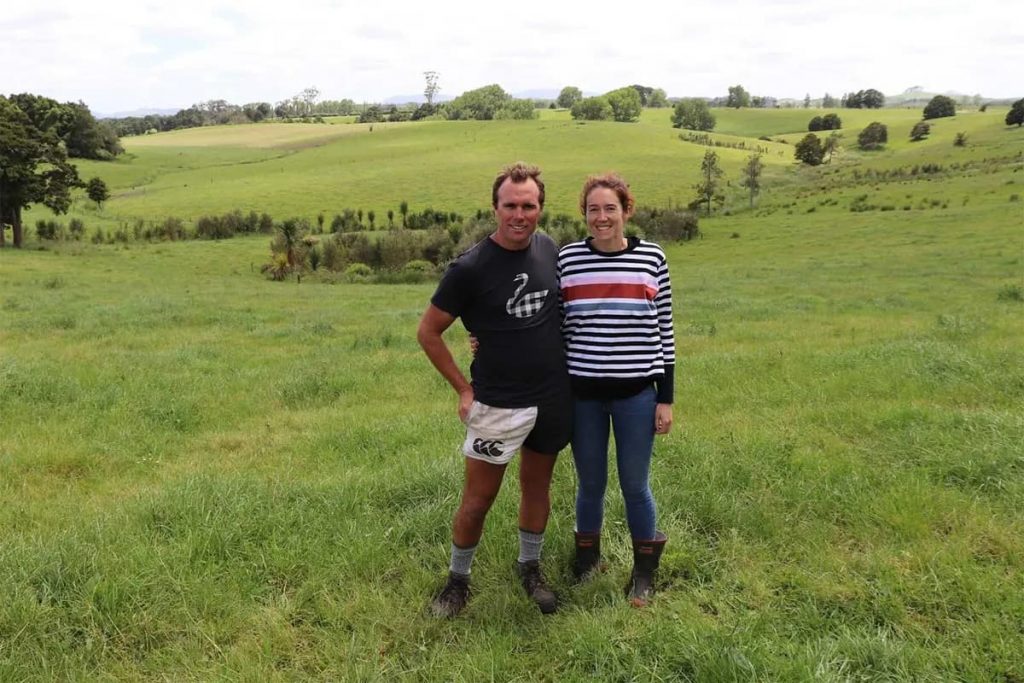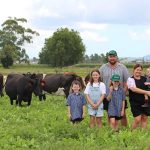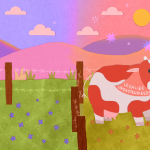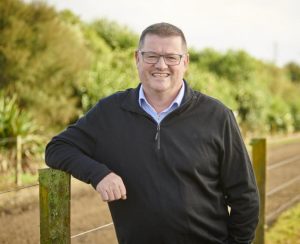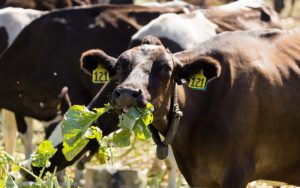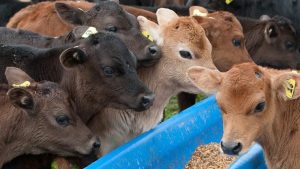Dairy farmers around New Zealand are grabbing spades and heading onto their farms and into their communities to plant native trees and plants.
Goals include creating great habitat for birds and other wildlife to thrive. Farmers report seeing more native birds on their properties including tūī, kererū and kārearea (New Zealand falcon). In some cases, they’re seeing bird types they’ve never seen before.
Northland dairy farmers Andrew and Vicky Booth have been planting on the family farm for over seven years, with more than 4000 native trees and plants going into the ground every year.
While the farm has always had native bush, and the Booths have always seen kererū, tūī and other native birds, they’re providing even more shelter and security for wildlife.
“Over the past three years, we’ve been seeing more native birds including banded rail and kākā. It’s great to hear kākā squawking at each other,” Andrew says.
Andrew says planting has many benefits. Trees and plants alongside waterways create shade for fish, eels and insects – which helps them flourish. This includes enhancing native species such as Kiwi favourite whitebait and kanakana (fish that look like eels). Trees also provide shade for cows.
He says farmers throughout the country are involved in a wide range of environmental initiatives in their communities. “They’re helping create nurseries to grow native tree and plants, and working with schools to help children learn about nature.”
Andrew and his wife Vicky host school groups on their farm so students can connect with nature. The children help plant trees and learn about the difference native bush can make for the environment.
“It’s great for students to come back to the farm and see over time the positive change they have contributed to.”

Northland dairy farmers Andrew and Vicky Booth.
Andrew says farmers nationwide are helping develop community facilities so people can get out in nature, including walkways near or on their farms. They’re working with others to create ecological corridors to support native wildlife including birds and bats.
“Some farms are close to urban areas and it’s great to see town and country people working together. We’re in Titoki, close to Whangarei, and love that urban/rural connection.”
Andrew is one of 400 environmentally focused farmers in the Dairy Environment Leaders (DEL) network, which was created by farmers, DairyNZ and the NZ Farm Environment Trust in 2007. The network aims to empower leadership and create opportunities to support and share on-farm actions to reduce environmental footprint.
The DEL forum is being held in Wellington from 12 to 14 March, where 70 leading farmers will get together to plan how they will support environmental progress in their communities this year. The forum is an opportunity for the DELs to connect with each other, policy makers, politicians and other influencers who help shape the New Zealand dairy sector.
Andrew says it’s important New Zealand gets the balance right between ensuring farm businesses can remain viable to continue contributing to local economies, while meeting increasing community and consumer expectations around sustainability.
The Booths are trapping pests including possums, stoats and ferrets, and have created a wetland covering 1.5 hectares, with 5500 trees planted around it.
“We’ve reduced our herd by 30 milking cows, from 430 cows to 400, and we’re breeding even better cows so we can reduce our herd size even further.”
Andrew and Vicky have two children – Tamsyn (10) and Hannah (9). He says they help drive his commitment to a sustainable future.
“We want farming to have as little impact on the environment as possible so we can continue to farm for generations to come, providing vital food and supporting local economies,” says Andrew.
